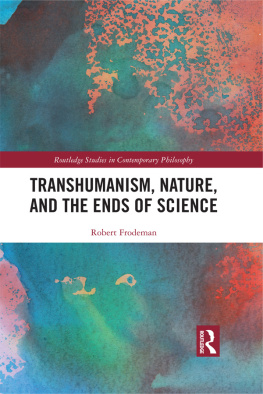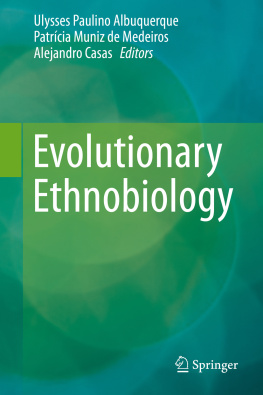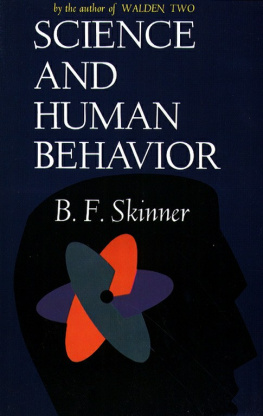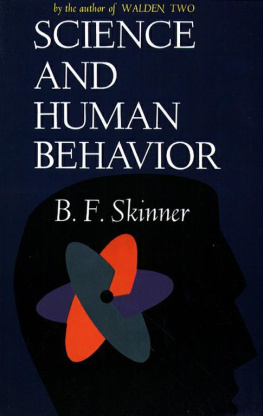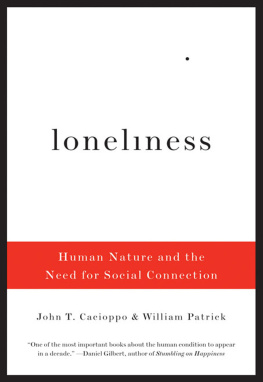
Dupr, John Professor of Philosophy of Science, University of Exeter
Human Nature and the Limits of Science
Publication date 2001 (this edition)
Print ISBN-10: 0-19-924806-0
Print ISBN-13: 978-0-19-924806-3
doi:10.1093/0199248060.001.0001
Abstract: This book applies to the study of human nature the generally pluralistic metaphysics and methodology developed in the author's earlier work. It begins with detailed criticism of two popular projects for understanding human nature, evolutionary psychology, and rational-choice theory. The argument shows how the flaws in these projects reflect deep misconceptions about the nature and the legitimate ambitions of science. Such scientific theories necessarily provide highly simplified accounts of a phenomenon as complex as human nature and can provide only a small part of the total picture of such a phenomenon. Only a pluralistic approach, an approach that combines insights from a variety of perspectives not limited to the scientific, can hope to provide anything close to an adequate account of human nature. In addition to a variety of partial perspectives from science, the humanities, and, not least, common human experience, it is argued that there is also room for a conception of human autonomy. The details of this conception, including a sketch of a novel voluntarist theory of freedom of the will, are provided in a concluding chapter.
Keywords: autonomy,Dupr,evolutionary psychology,free will,human nature,metaphysics,philosophy of science,pluralism,rational choice,science,scientism
Human Nature and the Limits of Science
end p.i
end p.ii
Human Nature and the Limits of Science
CLARENDON PRESS OXFORD
2001
end p.iii

Great Clarendon Street, Oxford ox2 6dp
Oxford University Press is a department of the University of Oxford
It furthers the University's objective of excellence in research, scholarship,
and education by publishing worldwide in
Oxford New York
Auckland Bangkok Buenos Aires Cape Town Chennai
Dar es Salaam Delhi Hong Kong Istanbul Karachi Kolkata
Kuala Lumpur Madrid Melbourne Mexico City Mumbai Nairobi
So Paulo Shanghai Taipei Tokyo Toronto
Oxford is a registered trade mark of Oxford University Press
in the UK and in certain other countries
Published in the United States
by Oxford University Press Inc., New York
John Dupr 2001
The moral rights of the authors have been asserted
Database right Oxford University Press (maker)
First published 2001
All rights reserved. No part of this publication may be reproduced,
stored in a retrieval system, or transmitted, in any form or by any means,
without the prior permission in writing of Oxford University Press,
or as expressly permitted by law, or under terms agreed with the appropriate
reprographcs rights organization. Enquiries concerning reproduction
outside the scope of the above should be sent to the Rights Department,
Oxford University Press, at the address above
You must not circulate this book in any other binding or cover
and you must impose this same condition on any acquirer
British Library Cataloguing in Publication Data
Data available
Library of Congress Cataloging in Publication Data
Data available
ISBN 0-19-924806-0
end p.iv
For Emily Farahar (1979-2001)
whom science failed
end p.v
end p.vi
Acknowledgements
In her recent book The Dappled World (), Nancy Cartwright makes the first reference in print of which I am aware to the Stanford School of the philosophy of science. The fixed point around which this movement revolved was undoubtedly Patrick Suppes. Suppes pioneered many of the themes we took up and taught at Stanford for several decades. Meanwhile, Ian Hacking, Peter Galison, Cartwright, and myself, taught there for various periods. Suppes's recent retirement completes the diaspora. However, these remain among the contemporary philosophers of science with whom my work has the greatest affinities, and I am grateful to Stanford University for bringing us together.
This book was written over the best part of a decade, and I cannot hope to recall all the colleagues and students with whom, at various times, I have discussed some of the topics it addresses. Colleagues at Stanford, Birkbeck, and Exeter have provided encouragement, advice, and intellectually stimulating environments that have made my work better. Ancestors of several chapters have been presented to audiences in those and many other universities in the United States and Europe, and I have benefited from the comments of many people on those occasions. Adrian Haddock, Jonathan Kaplan, Philip Kitcher, Helen Longino, Ina Roy, and an anonymous referee each read an entire draft of the book, and the final version has been much improved by their thoughtful comments. My understanding of biology owes much more to the work of Ernst Mayr and Richard Lewontin than appears from the citations, which focus inevitably on those with whom I disagree. Peter Momtchiloff of Oxford University Press has been an enthusiastic and supportive editor and has enabled publication to proceed with an efficiency and dispatch not universal in academic publishing.
The book was completed during a period of leave funded by the Arts and Humanities Research Board and research leaves granted by
end p.vii
Birkbeck College, University of London and the University of Exeter. I would like to thank all of these institutions for their support.
From my sons, Gabriel and Julian, I learned much of what I know about human development and about the futility of the dichotomy between nature and nurture. And, as always, my greatest debt is to Regenia Gagnier. Her humanistic learning, critical virtuosity, and domestic best practice have added value to my environment for almost twenty years.
I have drawn freely on previously published work in writing this book, and I would like to thank the publishers of various papers for allowing me to include substantial extracts in this book. Parts of Chapters includes most of 'The Solution to the Problem of the Freedom of the Will', Philosophical Perspectives 10 (1996): 385-402.
end p.viii
Contents
| Introduction |
| The Foundations of Evolutionary Psychology | Introduction | | Overview of the Evolutionary Argument | | How Much Must Evolution Explain? | | Atavism | | Do Brains Cause Behaviour? | | Nature and Culture |
|
| The Evolutionary Psychology of Sex and Gender | Introduction | | The Sociobiology of Sex and Gender: The Classic Story | | Sociobiology Twenty-five Years Later | | Further Reflections on the Poverty of Evolutionary Psychological Inference |
|
| The Charms and Consequences of Evolutionary Psychology |



